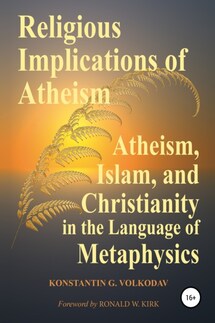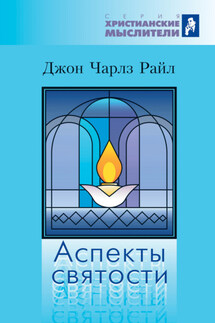Religious Implications of Atheism - страница 14
Could physics give the initial impulse for the emergence of the universe, if it did not exist at first? The question is rhetorical. What comes first, physics or metaphysics, matter or spirit? There must be a final limit, beyond which there is no longer physics. This limit is non-being (Lat. nihilo, Gr. οὐκ ὄν). This is absolute non-being (non-existence, nothingness), a denial of any existence (any of its forms), and a denial of any being. It lacks any essence, potency, inner laws and anything else. In non-being, there are not only the laws of physics, but also even the laws of abstract mathematics.
A great many scientific books and articles on the emergence of the universe from “nothing” have been written. Although the approaches and methods in these scientific works may differ, they are all based on one glaring logical error and can only fascinate science fanatics. The error lies in the fact that the authors speak the language of physics and mathematics about the moment of the origin of the universe, about the initial singularity, ie in the language of the material world, which did not yet exist at that moment. The universe arose not from a physical or mathematical vacuum, but from non-being (nothingness), in which there was no physics, no mathematics. Obviously, when there was no “physics” (ie the material world), there were no laws of physics either. Therefore, no scientific formulas and equations make sense in the original singularity.
It remains to recognize that the act of creating out of nothing requires a person, a creator, who is transcendental in relation to his creation. Moreover, this is not just a philosophical conclusion, but also a fundamental ontological Law, similar to the First and Second Laws of thermodynamics. Just like the Laws of thermodynamics, this Law is not proved, but enunciated inductively.
The centuries-old experience of humankind, no exception from which has ever been found, says that only a creator, a person, can create something out of non-being. A genius poem or musical symphony is not created by physical or chemical processes in the human brain, but is the fruit of his creative act. No tomography and electron microscopes will help you find out how a piece of music is born in the head of a brilliant composer. It cannot be described in the language of physics and mathematics. Nevertheless, it is given to us to feel it through experience.
No physicists will ever answer where the laws of physics come from, which cause the universe from nothing. An honest scientist can only say that the mystery that caused and created everything will always be an insoluble mystery for materialistic science.
Thus, it would be reasonable and logical to admit that only a metaphysical Cause could give the initial impulse to the universe. Only the Reasonable Creator, possessing free will, not bound by any laws of necessity, causality or anything else, and therefore “calls into existence the things that do not exist” (Rom. 4:17), could call the universe from non-being into being. He did not need a beginning, since he is Being itself (Gr. ὀ ὄν) and generally transcendental to the material world. However, that is another big topic.
Three Options to Explain the Origin of the Universe
All versions of explanations of the origin of the universe in the entire history of human thought are reduced to three main ones: 1) the universe, or some “part” of it, existed forever, that is, it had no beginning; 2) the universe is “an emanation from the divine nature”, that is, it receives its origin from the essence of the beginningless non-material primary cause; 3) The universe was created by the will of the transcendental First Cause out of non-being (nothingness).






